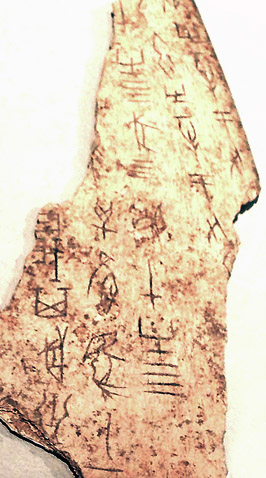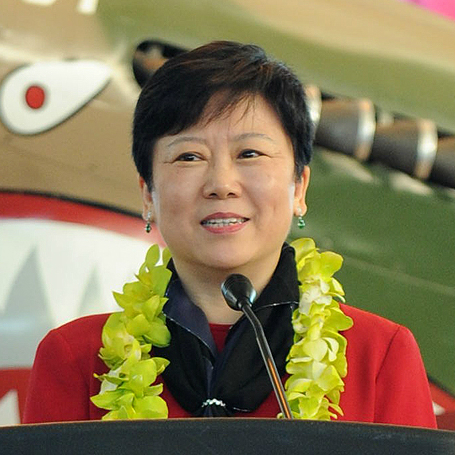|
Liu Yuan (PRC General)
Liu Yuan (; born 22 February 1951) is a retired general of the Chinese People's Liberation Army and a former politician. He served as the last political commissar of the PLA General Logistics Department and prior to that, political commissar of the PLA Academy of Military Science.Page, Jeremy ''"Princeling" General Attracts Notice with Criticism of Party'' China Realtime Report, The Wall Street Journal, 23 May 2011. Before his military career, he served as vice mayor of and vice governor of |
Henan
Henan; alternatively Honan is a province in Central China. Henan is home to many heritage sites, including Yinxu, the ruins of the final capital of the Shang dynasty () and the Shaolin Temple. Four of the historical capitals of China, Luoyang, Anyang, Kaifeng and Zhengzhou, are in Henan. While the province's name means 'south of the river', approximately a quarter of the province lies north of the Yellow River. With an area of , Henan covers a large part of the fertile and densely populated North China Plain. Its neighboring provinces are Shaanxi, Shanxi, Hebei, Shandong, Anhui, and Hubei. Henan is China's third-most populous province and the most populous among inland provinces, with a population of over 99 million as of 2020. It is also the world's seventh-most populous administrative division; if it were a country by itself, Henan would be the 17th-most populous in the world, behind Egypt and Vietnam. People from Henan often suffer from regional discrimination ... [...More Info...] [...Related Items...] OR: [Wikipedia] [Google] [Baidu] |
Central Military Commission (China)
The Central Military Commission (CMC) is the highest military leadership body of the Chinese Communist Party (CCP) and the China, People's Republic of China (PRC), which heads the People's Liberation Army (PLA), the People's Armed Police (PAP), and the Militia (China), Militia of China. There are technically two separate commissions; the Central Military Commission of the Chinese Communist Party and the Central Military Commission of the People's Republic of China. Under the arrangement of "one institution with two names", both commissions have identical personnel, organization and function, and operate under both the party and state systems. The commission's parallel hierarchy allows the CCP to supervise the political and military activities of the PLA, including issuing directives on senior appointments, troop deployments and arms spending. The CMC is chaired by Xi Jinping, the General Secretary of the Chinese Communist Party and paramount leader. Almost all the members are ... [...More Info...] [...Related Items...] OR: [Wikipedia] [Google] [Baidu] |
General Secretary Of The Chinese Communist Party
The general secretary of the Central Committee of the Chinese Communist Party ( zh, s=中国共产党中央委员会总书记, p=Zhōngguó Gòngchǎndǎng Zhōngyāng Wěiyuánhuì Zǒngshūjì) is the leader of the Chinese Communist Party (CCP), the sole ruling party of the People's Republic of China (PRC). Since 1989, the CCP general secretary has been the paramount leader of the PRC. The position of the general secretary of the Central Committee was established at the 4th Party National Congress in 1925, when Chen Duxiu, one of the founders of the CCP, was elected as the first General Secretary. After the 7th National Congress, the position was replaced by the Chairman of the Central Committee, which was held by Mao Zedong until his death. The post was re-established at the 12th National Congress in 1982 and replaced the Party Chairman as the highest leadership position of the CCP; Hu Yaobang was the first General Secretary. Since the 1990s, the holder of the pos ... [...More Info...] [...Related Items...] OR: [Wikipedia] [Google] [Baidu] |
Xi Jinping
Xi Jinping, pronounced (born 15 June 1953) is a Chinese politician who has been the general secretary of the Chinese Communist Party (CCP) and Chairman of the Central Military Commission (China), chairman of the Central Military Commission (CMC), and thus the paramount leader of China, since 2012. Since 2013, Xi has also served as the seventh president of China. As a member of the fifth Generations of Chinese leadership, generation of Chinese leadership, Xi is the first CCP general secretary born after the Proclamation of the People's Republic of China, establishment of the People's Republic of China (PRC). The son of Chinese communist veteran Xi Zhongxun, Xi was exiled to rural Yanchuan County, Shaanxi Province, as a teenager following his father's purge during the Cultural Revolution. He lived in a yaodong in the village of Liangjiahe, where he joined the CCP after several failed attempts and worked as the local Chinese Communist Party Committee Secretary, party secretary ... [...More Info...] [...Related Items...] OR: [Wikipedia] [Google] [Baidu] |
Princelings
The Princelings (), also translated as the Party's Crown Princes, are the descendants of prominent and influential senior communist officials in the People's Republic of China. It is an informal, and often derogatory, categorization to signify those believed to be benefiting from nepotism and cronyism, by analogy with the crown prince (Chinese: '' taizi'') in hereditary monarchies. Many of its members have held high-level political and business positions in the upper echelons of power. In contemporary China, "Princelings" are the descendants of senior Chinese Communist Party (CCP) leaders and have themselves risen to high-ranking positions within the CCP. If their parents belong to the first generation of CCP revolutionaries, they are also referred to as the "second Red Generation," "Red Heirs," or "the Red Nobility." Princelings also encompass the sons and daughters of later generations of top leaders, including figures like Jiang Zemin, Li Peng, and Hu Jintao. Princelings exert ... [...More Info...] [...Related Items...] OR: [Wikipedia] [Google] [Baidu] |
The Jamestown Foundation
The Jamestown Foundation is a Washington, D.C.–based non-partisan defense policy think tank. Founded in 1984 as a platform to support Soviet defectors, its stated mission is to inform and educate policy makers about events and trends, which it regards as being of current strategic importance to the United States. Jamestown publications focus on China, Russia, Eurasia, and global terrorism. Founding and mission The Jamestown Foundation was founded in 1984 after Arkady Shevchenko, the highest-ranking Soviet official ever to defect when he left his position as Under-Secretary-General of the United Nations, defected in 1978. William Geimer, an American lawyer, had been working closely with Shevchenko, and established the foundation as a vehicle to promote the writings of the former Soviet diplomat and those of Ion Pacepa, a former top Romanian intelligence officer; with the help of the foundation, both defectors published bestselling books.Jamestown FoundationOrigins Central I ... [...More Info...] [...Related Items...] OR: [Wikipedia] [Google] [Baidu] |
People's Armed Police
) , abbreviation = PAP ("People's Armed Police") CAPF ("Chinese Armed Police Force"), formerly abbreviated''Wujing'' ( zh , s = 武警 , p = Wǔjǐng , l = Armed Police , labels = no ), or WJ as on vehicle license plates , patch = , patchcaption = Flag of the Force(since 10 January 2018) , logo = Emblem of PAP Helicopter.svg , logocaption = Roundel of People's Armed Police helicopters , badge = Chinese People's Armed Police Force (CAPF) cap insignia (2021).svg , badgecaption = Badge of the Force(since 1 August 2021) , flag = PAP Armband.svg , flagcaption = Sleeve badge of the Force , imagesize = , motto = , mottotranslated = (Serve the People) , formed = * (de facto) * , preceding1 = , dissolved = , superseding = , employees = 1.5 million , budget = , legalpersonality = , country = China , nat ... [...More Info...] [...Related Items...] OR: [Wikipedia] [Google] [Baidu] |
Zhongnanhai
Zhongnanhai () is a compound that houses the offices of and serves as a residence for the leadership of the Chinese Communist Party (CCP) and the State Council of the People's Republic of China, State Council. It was a former imperial garden, and is located adjacent to the Forbidden City, Forbidden Palace in Beijing. The term ''Zhongnanhai'' is often used as a Metonymy, metonym for China's central government and its leadership at large. The party and state leaders, including the General Secretary of the Chinese Communist Party, general secretary of the CCP as well as the paramount leader, and other top party and state Leadership of the People's Republic of China, leadership figures carry out many of their day-to-day administrative activities inside the compound, such as meetings with foreign dignitaries. China Central Television (CCTV) frequently shows footage of meetings inside the compound, but limits its coverage largely to views of the interior of buildings. Though nume ... [...More Info...] [...Related Items...] OR: [Wikipedia] [Google] [Baidu] |
Beijing No
Beijing, previously romanized as Peking, is the capital city of China. With more than 22 million residents, it is the world's most populous national capital city as well as China's second largest city by urban area after Shanghai. It is located in Northern China, and is governed as a municipality under the direct administration of the State Council with 16 urban, suburban, and rural districts.Figures based on 2006 statistics published in 2007 National Statistical Yearbook of China and available online at archive. Retrieved 21 April 2009. Beijing is mostly surrounded by Hebei Province and neighbors Tianjin to the southeast; together, the three divisions form the Jing-Jin-Ji cluster. Beijing is a global city and one of the world's leading centres for culture, diplomacy, politics, finance, business and economics, education, research, language, tourism, media, sport, science and technology, transportation, and art. It is home to the headquarters of most of China's largest ... [...More Info...] [...Related Items...] OR: [Wikipedia] [Google] [Baidu] |
Bombard The Headquarters
''Bombard The Headquarters – My Big-Character Poster'' () was a short document written by Chairman Mao Zedong on August 5, 1966, during the 11th plenary session of the 8th Central Committee of the Chinese Communist Party, and published in the Communist Party's official newspaper ''People's Daily'' a year later, on August 5, 1967. It is commonly believed that this "big-character poster" directly targeted Chinese President Liu Shaoqi and senior leader Deng Xiaoping, who were then in charge of the Chinese government's daily affairs and who tried to cool down the mass movement which had been coming into shape in several universities in Beijing since the May 16 Notice, through which Mao officially launched the Cultural Revolution, was issued. Many larger-scale mass persecutions followed the publication of this big-character poster, resulting in turmoil throughout the country and the death of thousands of " class enemies", including President Liu Shaoqi. Text The original t ... [...More Info...] [...Related Items...] OR: [Wikipedia] [Google] [Baidu] |
Cultural Revolution
The Cultural Revolution, formally known as the Great Proletarian Cultural Revolution, was a Social movement, sociopolitical movement in the China, People's Republic of China (PRC). It was launched by Mao Zedong in 1966 and lasted until his death in 1976. Its stated goal was to preserve Ideology of the Chinese Communist Party, Chinese socialism by purging remnants of Capitalism, capitalist and Four Olds, traditional elements from Chinese culture, Chinese society. In May 1966, with the help of the Cultural Revolution Group, Mao launched the Revolution and said that Bourgeoisie, bourgeois elements had infiltrated the government and society with the aim of restoring capitalism. Mao called on young people to Bombard the Headquarters, bombard the headquarters, and proclaimed that "to rebel is justified". Mass upheaval began in Beijing with Red August in 1966. Many young people, mainly students, responded by forming Cadre system of the Chinese Communist Party, cadres of Red Guards th ... [...More Info...] [...Related Items...] OR: [Wikipedia] [Google] [Baidu] |






